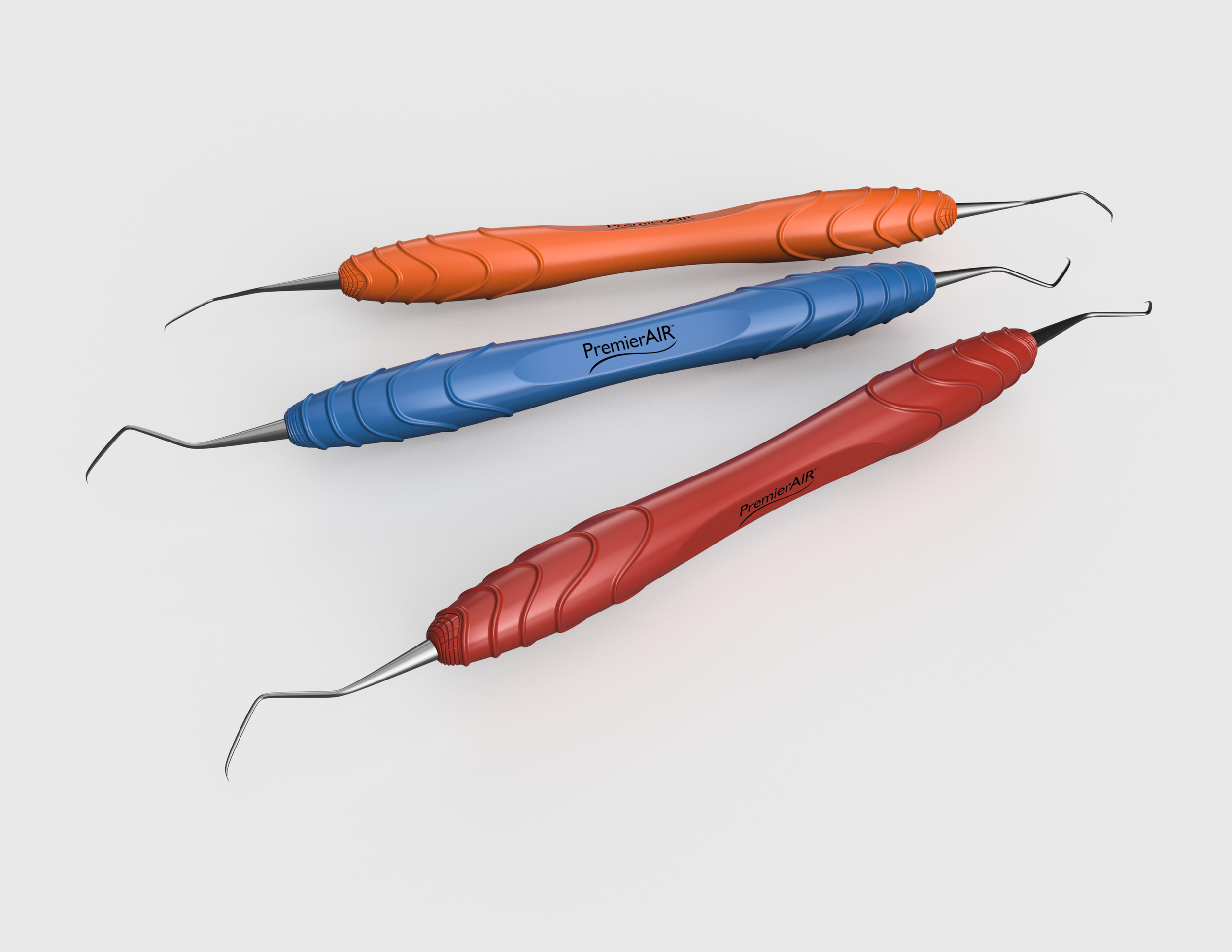DENTAL TOOLS
Resin Handle Instruments
Premier Dental
MISSION
Develop a new line of durable resin handled diagnostic, hygiene and operative dental instruments keeping number of parts and cost in mind.
HYGIENIST RESEARCH
PRELIMINARY USER INTERVIEWS
16 years experience
Currently works with three other hygienist in a local practice
Currently uses American Eagle resin handle hygiene tools and metal handle probe and mirror
Each hygienist in the office makes the decision of what brand instruments they want to retain
Typically uses 2-3 tools per cleaning procedures with one mirror and probe
Typically four patients in the morning and four patients in the afternoon
ERGONOMIC STUDIES
DENTAL HYGIENIST HAND POSITIONING
Modified pen grip
Handle gripped between the thumb and index finger
Middle finger rests on the tool shank near the working end for control
Ring finger used as fulcrum and is rested on the patient
Similar product research
HANDLE PREFERENCES
Larger diameter over smaller
Grip features for stability
Light weight
Instrument cost not a large factor in handle selection
HANDLE NEGATIVES
Features that require longer cleaning time
Irregular cross sections interferes with rolling the instrument in the fingers.
Handle shapes that dictate one finger or hand position
ADDITIONAL INSTRUMENT HANDLING
One-Handed flipping
The tool having working portions on both ends, is rotated in the hand to switch ends.
Four-Handed Dentistry
A technique in which a dental assistant or dental hygienist works directly with the dentist on the procedures being done in the mouth of a patient.
Instruments need to be passed swiftly to the dentist, and then back to the dental assistant during oral surgery.
SUMMARY
Larger profile provides most comfort
Shape must be round or have at least 6 sides in cross section
Taper toward tip allow easier grip axial adjustment
Must not be slippery axially or rotationally
Surface for product branding required
Means of identifying handles for ownership
Shape must be cleanable
Shape must be attractive
Consider ease of orientation when reversing ends when working
Consider ease of transfer for operative tools
















